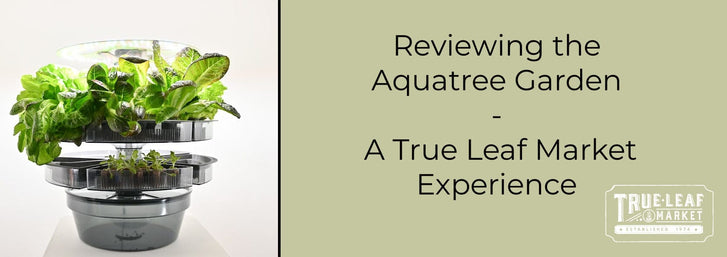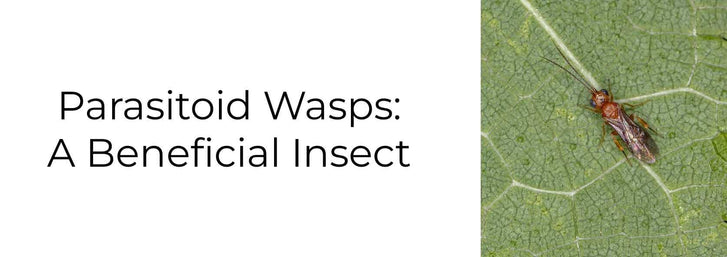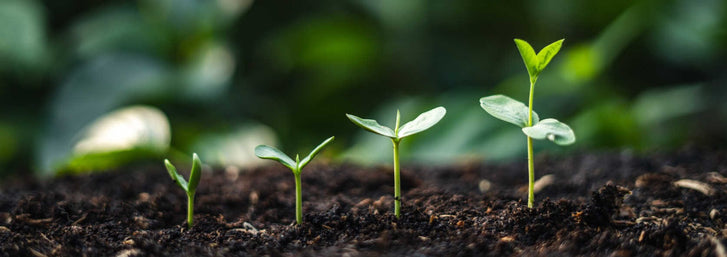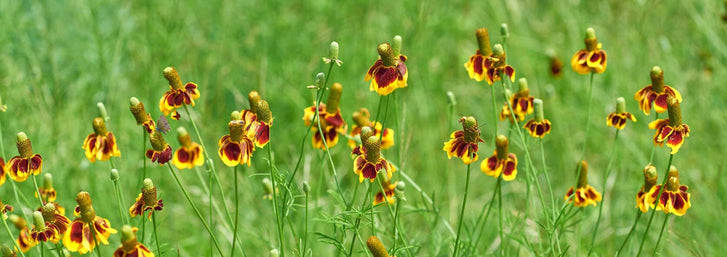
Ashleigh Smith

Preventing damage to your garden by critters such as deer and rabbits doesn’t have to be as hard as it may sound. Animals tend to dislike plants with fuzzy textures and strong scents. This makes adding ornamental plants to your garden a perfect way to deter pests without applying pesticides.
They can also help attract beneficial insects while deterring other pests. If you usually have problems with pests inhabiting your garden space, check out our Pest Troubleshooting Guide for specific tips to control large populations.
It's important to remember almost no plant is truly resistant to animals. If they are hungry enough, animals will still go for the plants they find unpleasant. To help further protect your garden utilize protective structures such as fencing, chicken wire, and netting. Netting may also help protect your crops from birds throughout the harvest season.
If you live in an area prone to extreme heat use a shade net to also reduce scorching. Planning out your garden ahead of time can help you to get the most out of a small area and get the most out of your protective plants. Arrange climbing plants near your fencing, preventative plants near garden openings, and plants for beneficial insects throughout the garden. To prevent wildlife from eating your harvest, include some of the following plants in your garden plans.
Plants Deer and Rabbits Find Unpleasant:
- Chives/Ornamental Onion
- Catmint
- Lavender
- Yarrow
- Spurge
- Barrenwort
- Delphinium
- Alchemilla
- Artemisia
- Lambs Ear
- Astilbe
- Perennial Salvia
- Liriope
- Russian Sage
- Marigold
- Lilac
About the Author

I'm Ashleigh Smith, a native to Northern Utah. I first gained a love of gardening with my grandmother as I helped her each summer. I decided to make a career of it and have recently graduated with a Bachelor's degree in Horticulture from Brigham Young University - Idaho. My studies have focused on plant production while I also have experience in Nursery & Garden Center Operations.
Become a True Leaf Market Brand Ambassador! You’ll enjoy awesome perks, free products and exclusive swag & offers! Help us create a gardening revolution and help others experience the joy of growing!
Leave a comment
Your email address will not be published. Required fields are marked *
6 comments
Lynn
I’m just gonna say my deer LOVE liriope. LOL!
mechele see
They eat everything in my yard and gardens. Even my tomato plants and pepper plants. The old ways don’t work on them anymore. I plant marigolds around all of my gardens. The rabbits ate them. The deer ignore them. I have found the only thing that works is to fence them out. And that fence has to be strong and high.
Sharon Brosnan
They eat my liriope down to the crown. A plant they have never bothered until this year is my once beautiful japonica which has really tough leaves but the beggars ate them anyway. I use repellant spray but it only works if I apply it every 3 days.
Vern Staley
I found an electric fence works very well to keep deer out of my tomatoes
Tammy
Do you have advice on anything I can plant to deter snakes?
Zola Hunt
Deer love my tall garden phlox. They prefer them when they are just getting ready to bloom. Then they come in and eat the flower buds/tops off of every single stem. I have a very prickly old fashioned rambling rose and they even eat the tender green shoots from that very thorny rose bush. Deer especially love to eat the new growth of my blackberry bushes, leaving me without a crop for more than one season. They do not touch my oriental poppies and they leave my bachelor buttons and cosmos alone, except for trampling the cosmos as they hop over my 5’ picket fence where the cosmos are planted. My only success with preventing deer damage is a 7’ high deer fence. Even then they have knocked it down in a few spots in an attempt to get at my garden so I have to be constantly vigilant in maintaining my fence and keeping gates closed. Deer seem to have a special affinity to my raised gardening beds where they love to bed down in the winter.
Further Reading

Reviewing the Aquatree Garden: A True Leaf Market Experience
Coming Soon!

Ashleigh Smith
2024-04-221 min read0
Parasitoid Wasps: A Beneficial Insect in the Garden
Written By Lara Wadsworth There are estimated to be around one million different species of parasitic wasps worldwide. In fact, most wasps are parasitic, which means they live on or in a host at the host's expense. For common garden pests like aphids, ...

Ashleigh Smith
2024-04-226 min read0
Succession Planting: The Key to a Continual Harvest
Coming Soon!

Ashleigh Smith
2024-04-221 min read0
10 Natives of the Southwest USA for Pest Control
Written By Lara Wadsworth The Southwestern United States is a region incredibly unique to the rest of the country. The hot, dry weather can be challenging for plants and animals to thrive without additional help. That is why gardening with natives can ...

Ashleigh Smith
2024-04-157 min read0



